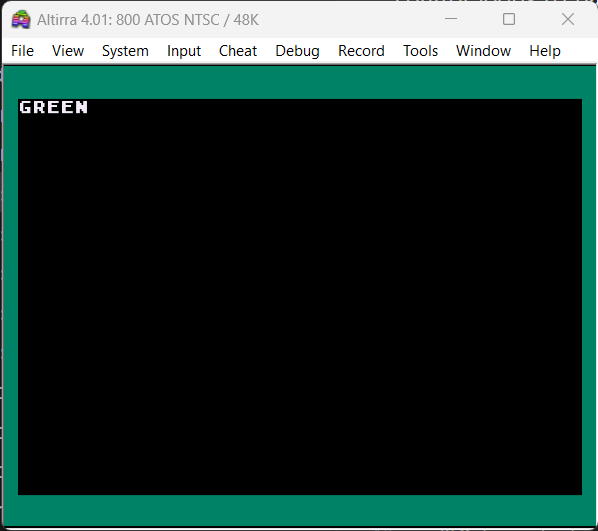FLOW CONTROL: EXITING FROM NESTED LOOP
This small example will use the DO...LOOP keywords to implement an endless loop, and the command EXIT n to break n loops. The outer loop will change, at each half of second, the border's color from black to yellow. The inner loop will change the color of border to red and green. Instead of continuing with the inner loop, this one (and the outer) will be exited by using the EXIT 2 command. The border color is changed using the COLOR BORDER instruction, using the predefined constants YELLOW, BLACK, RED, GREEN. To wait for a specific amount of time the WAIT command will be used, with the MS (milliseconds) unit of time.
source
compile
sandbox
issues?
back to examples


